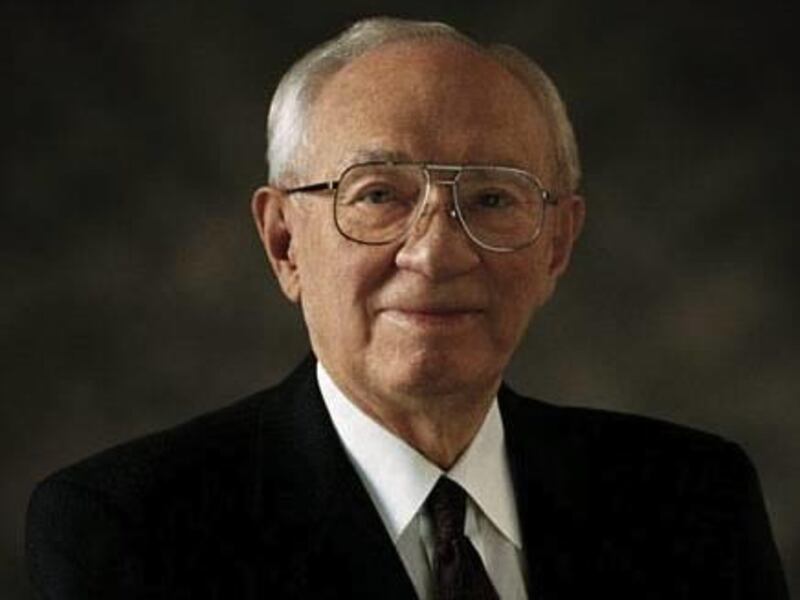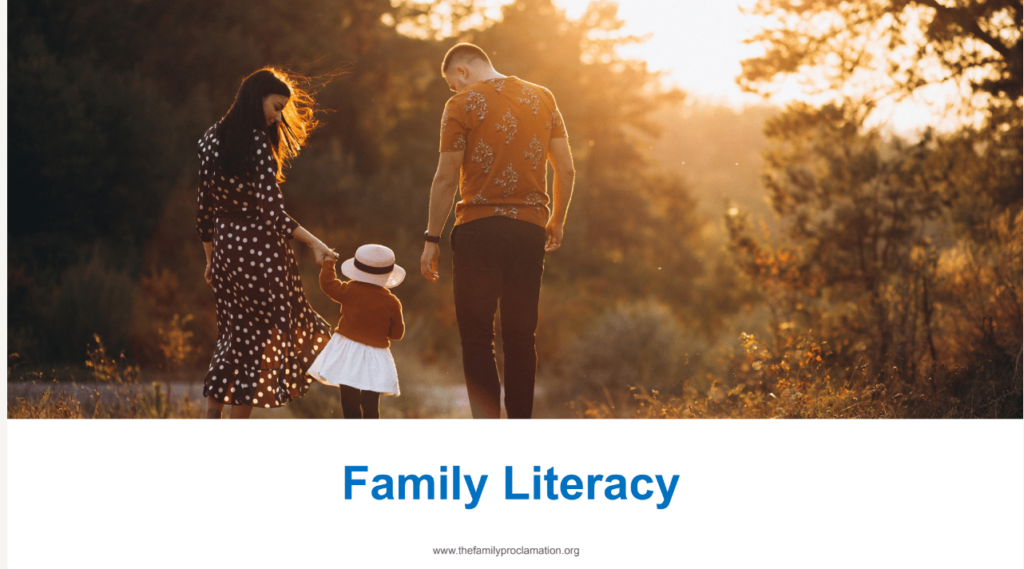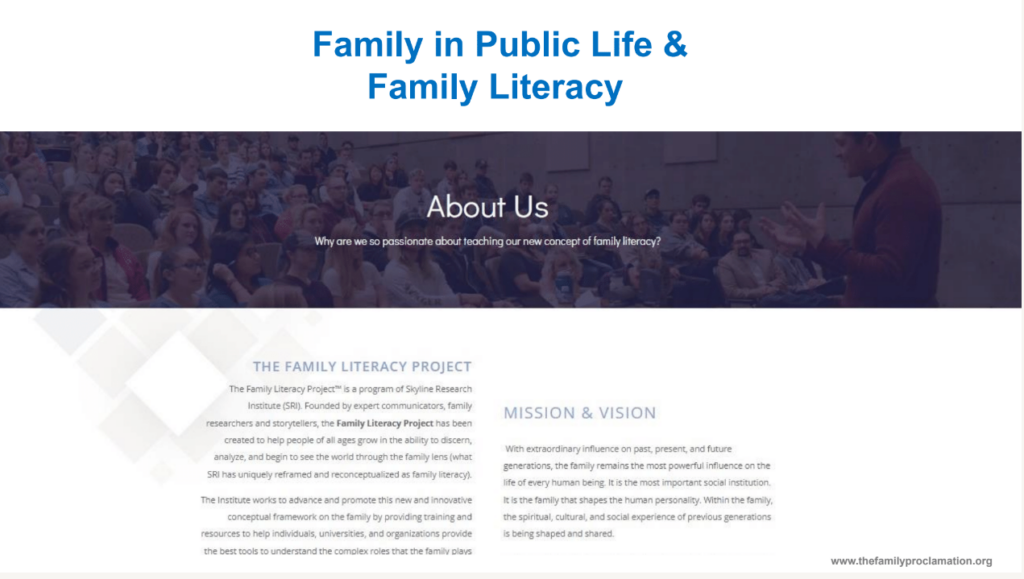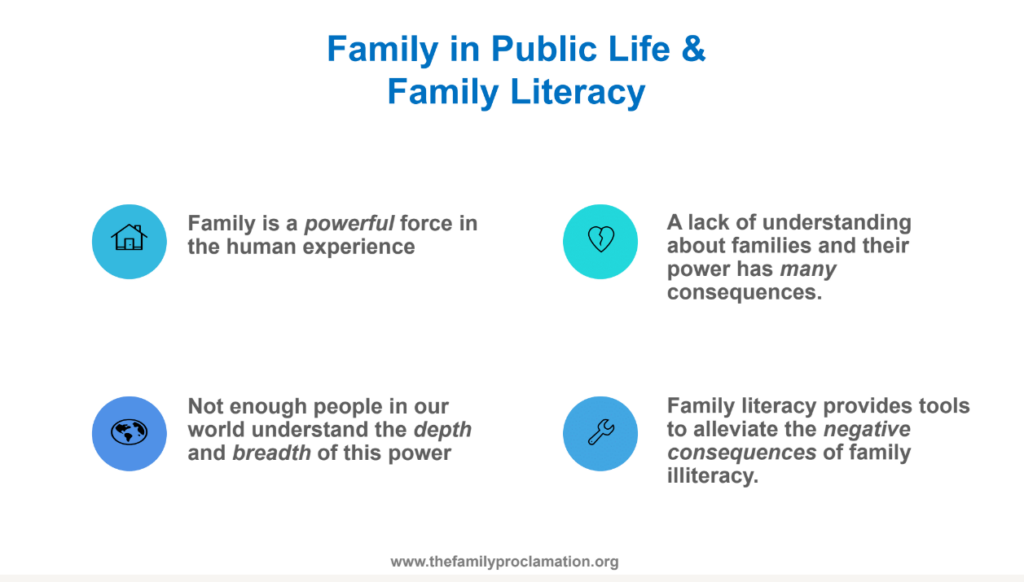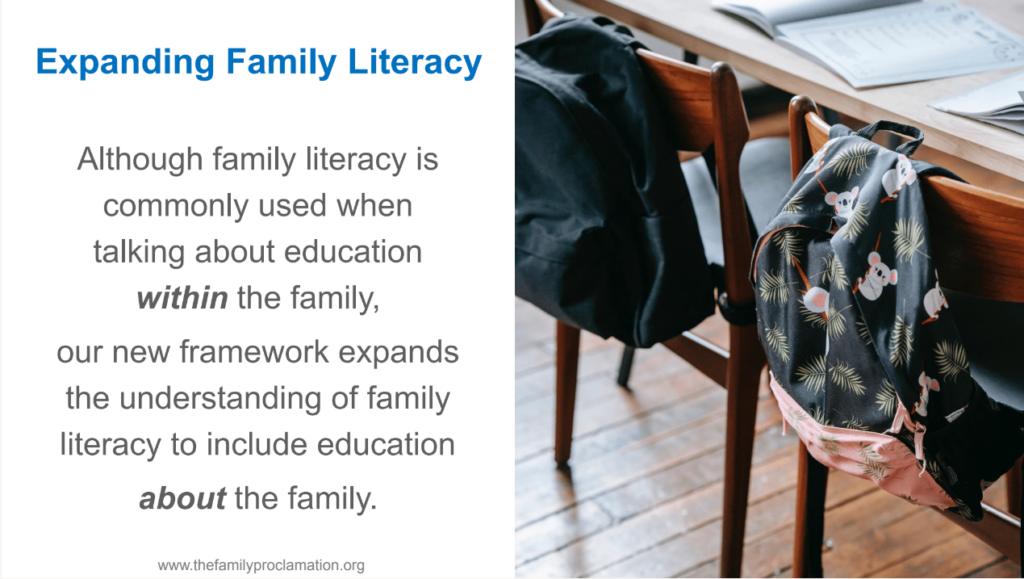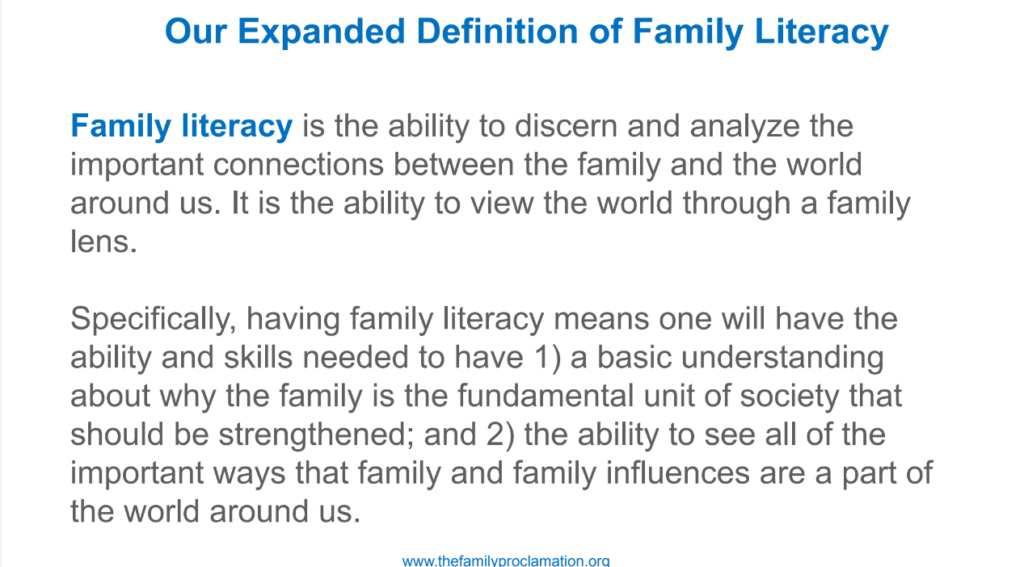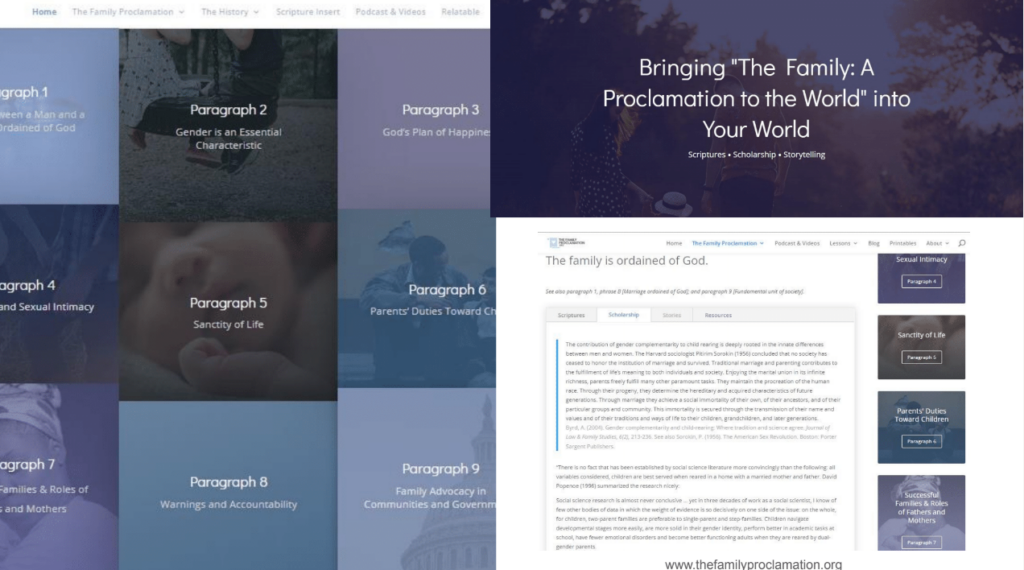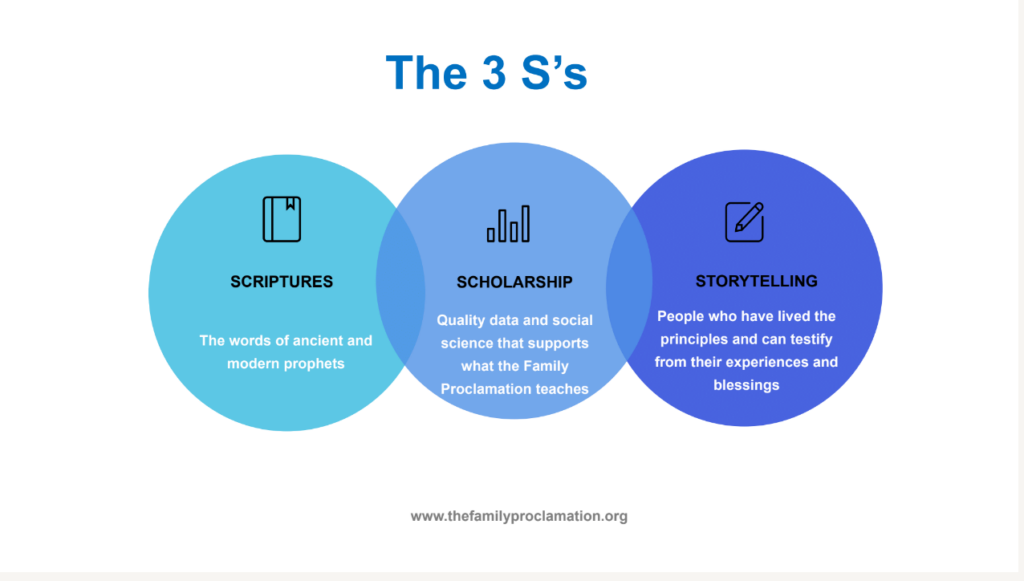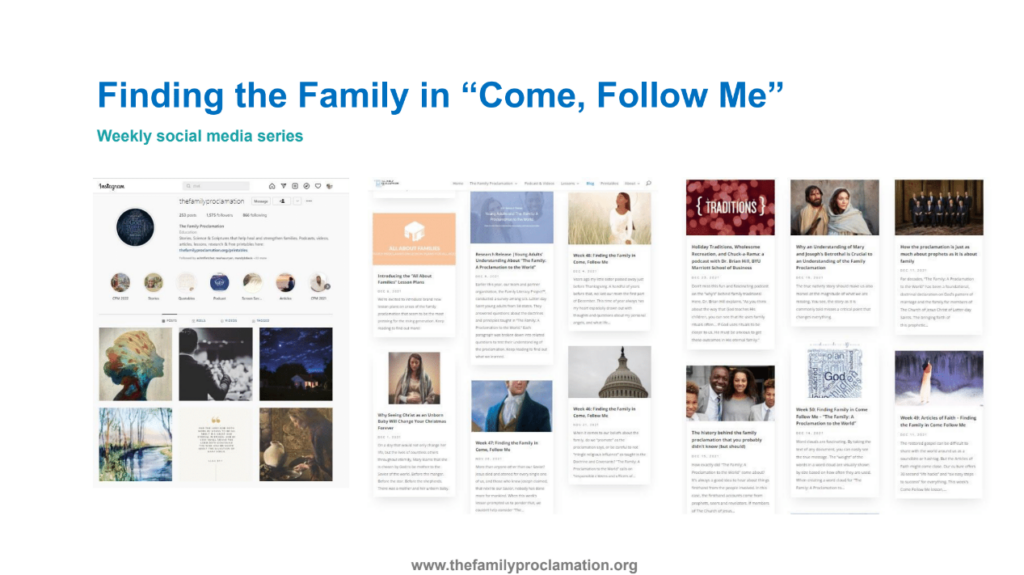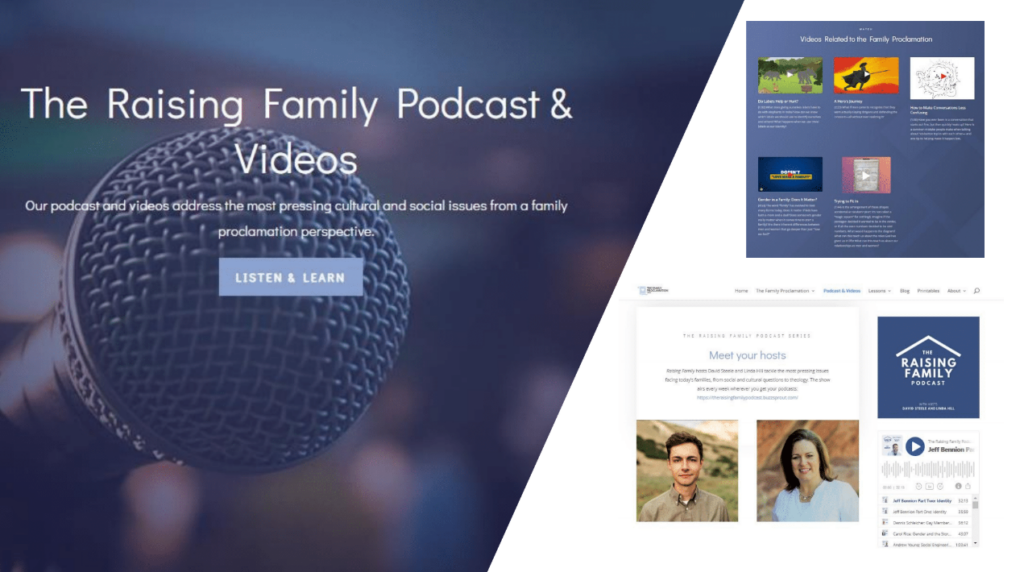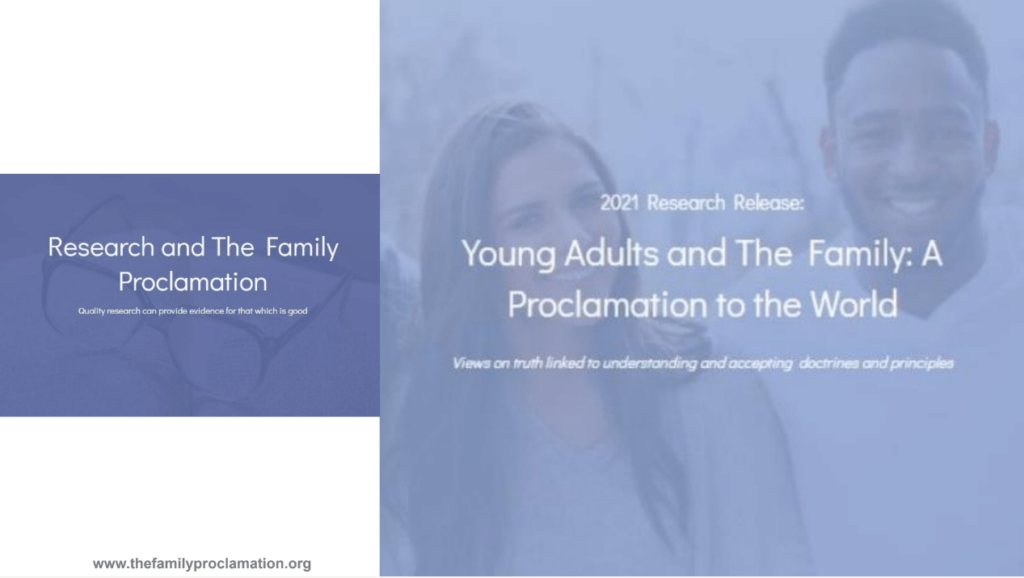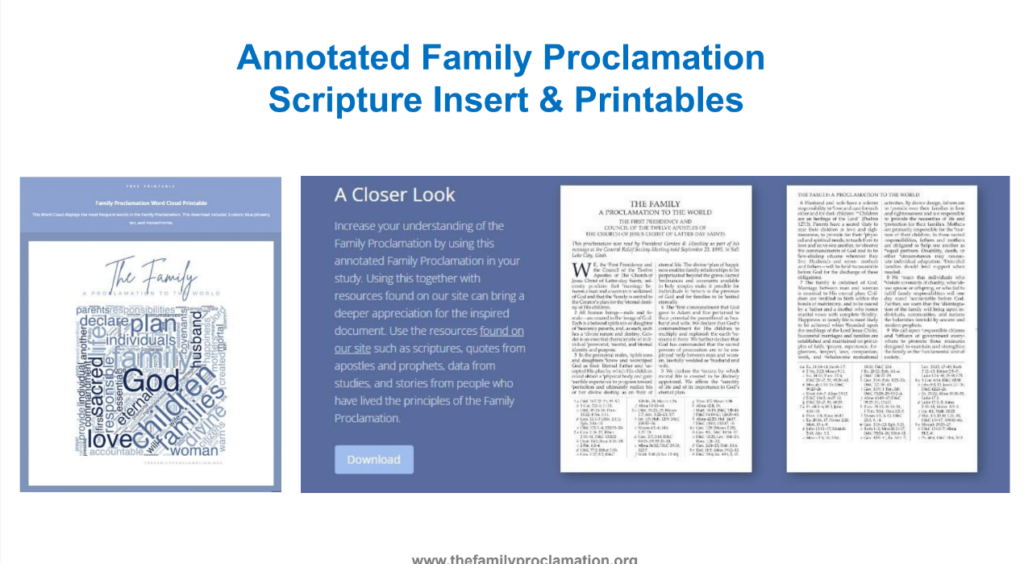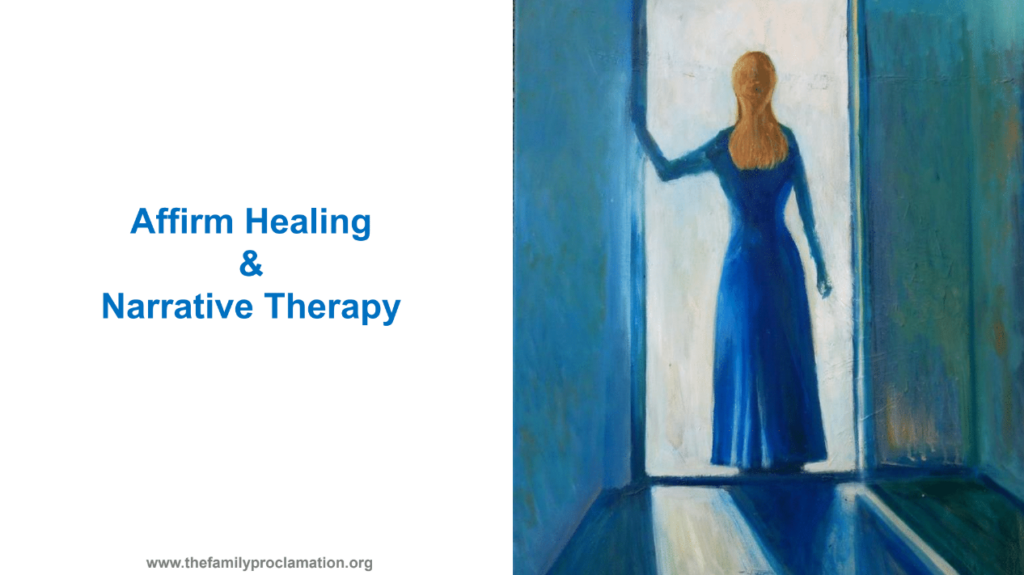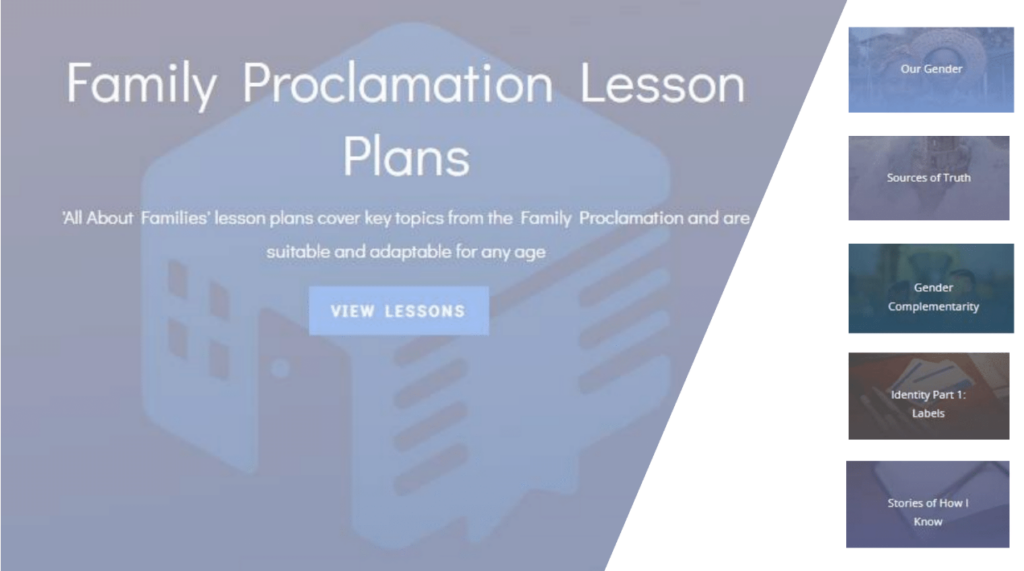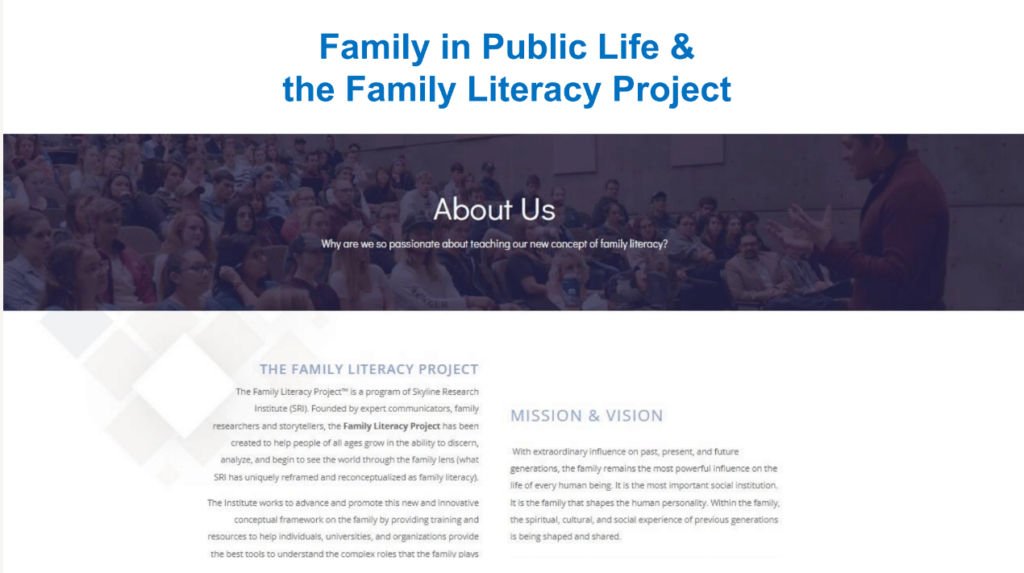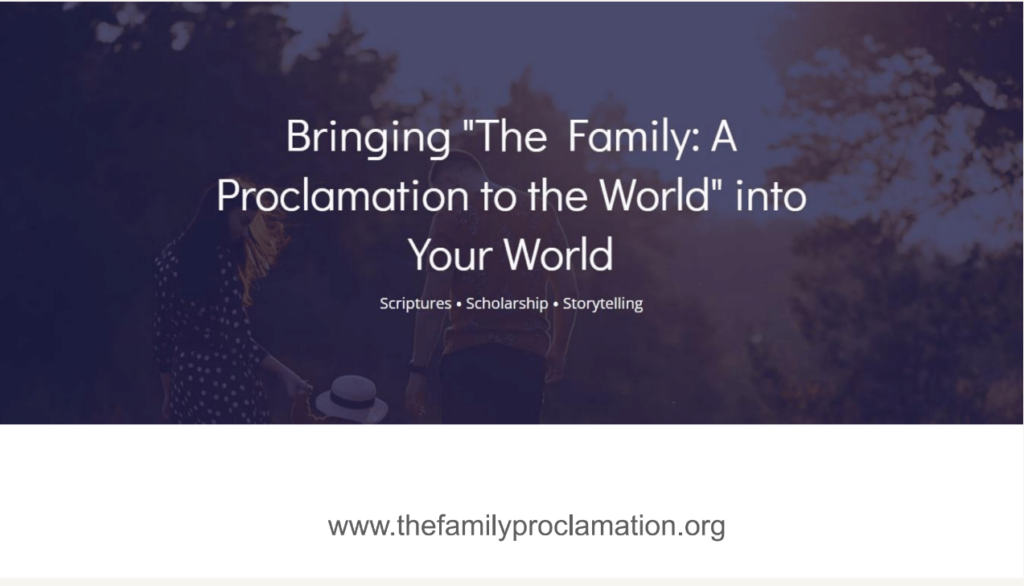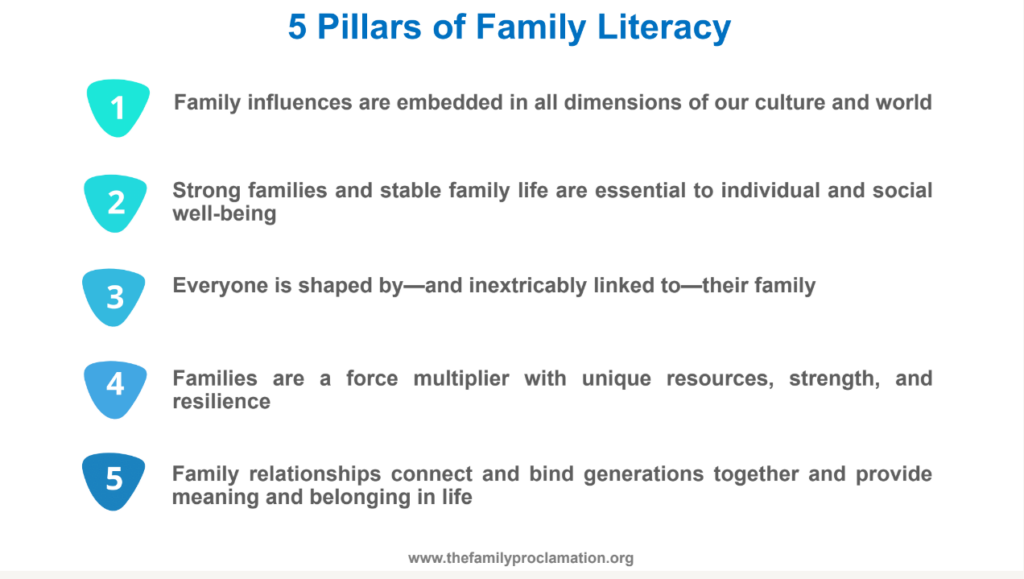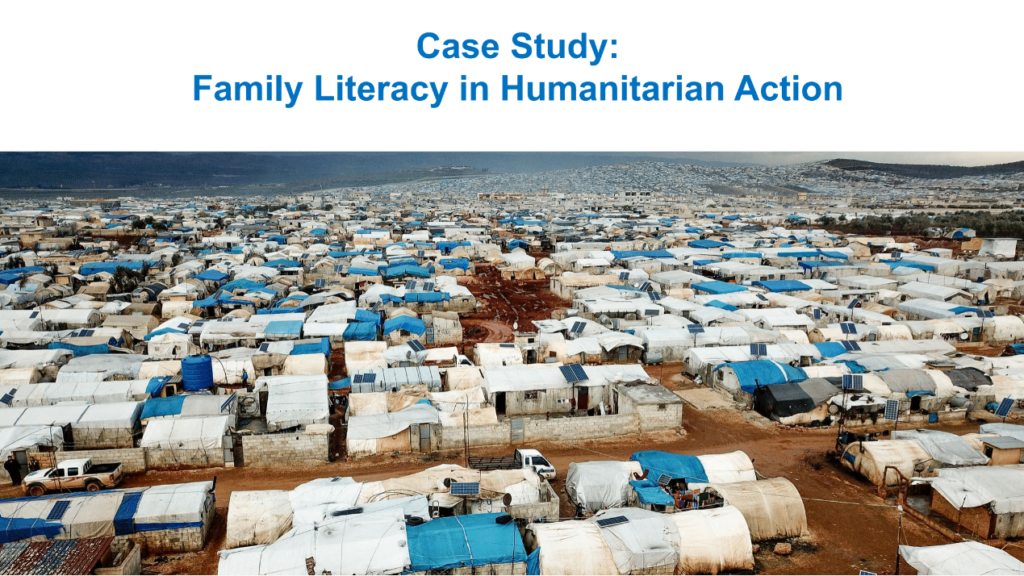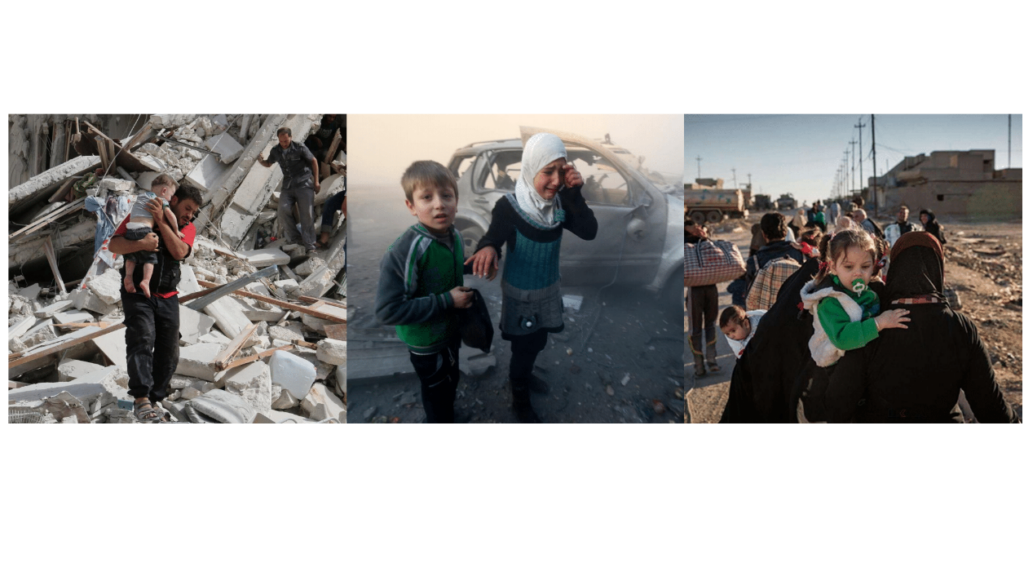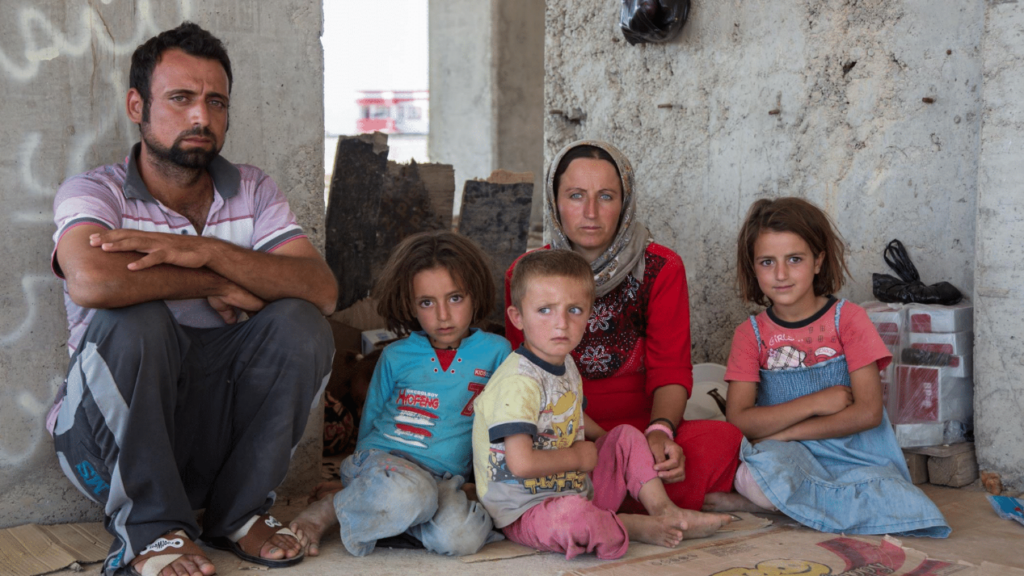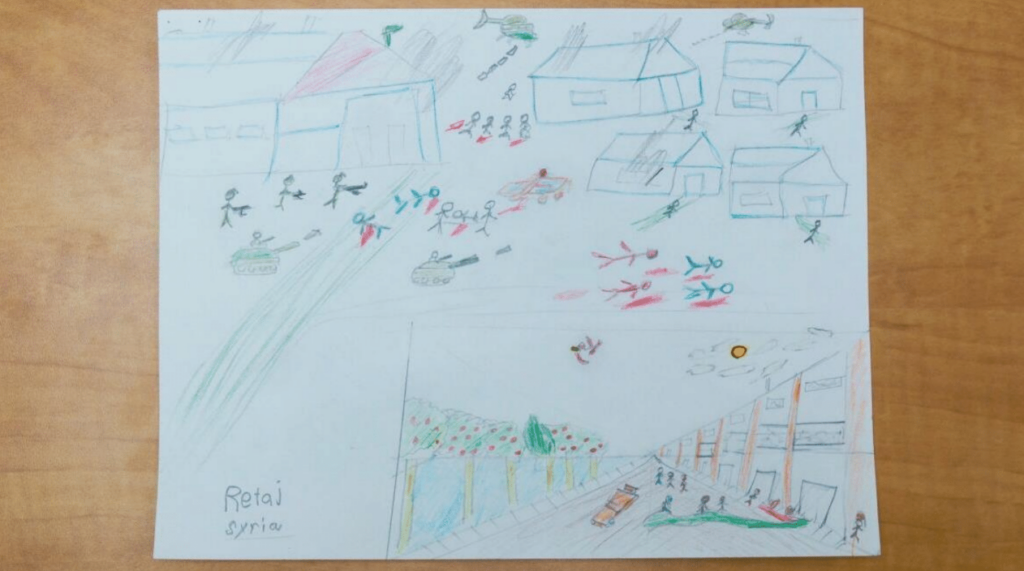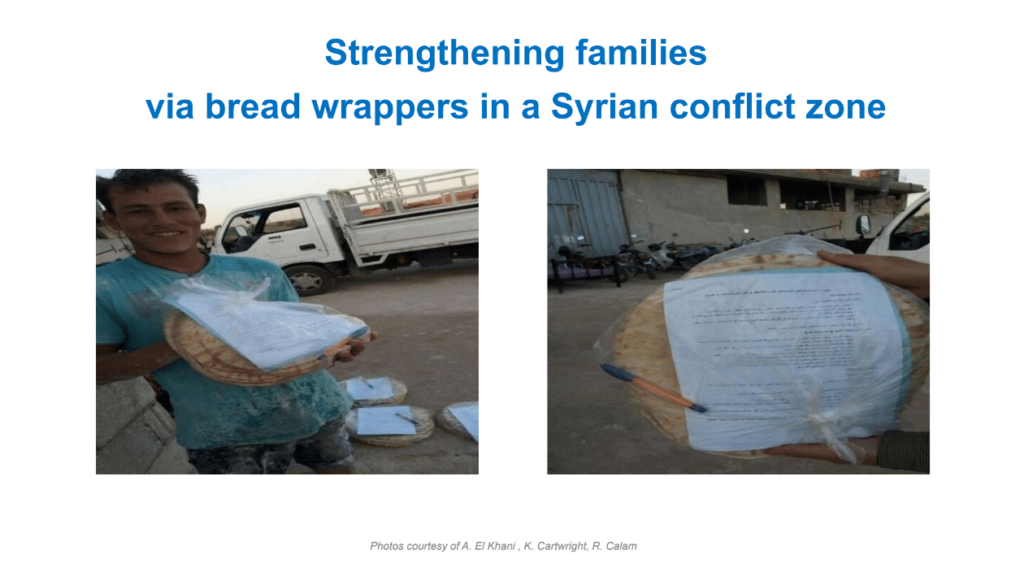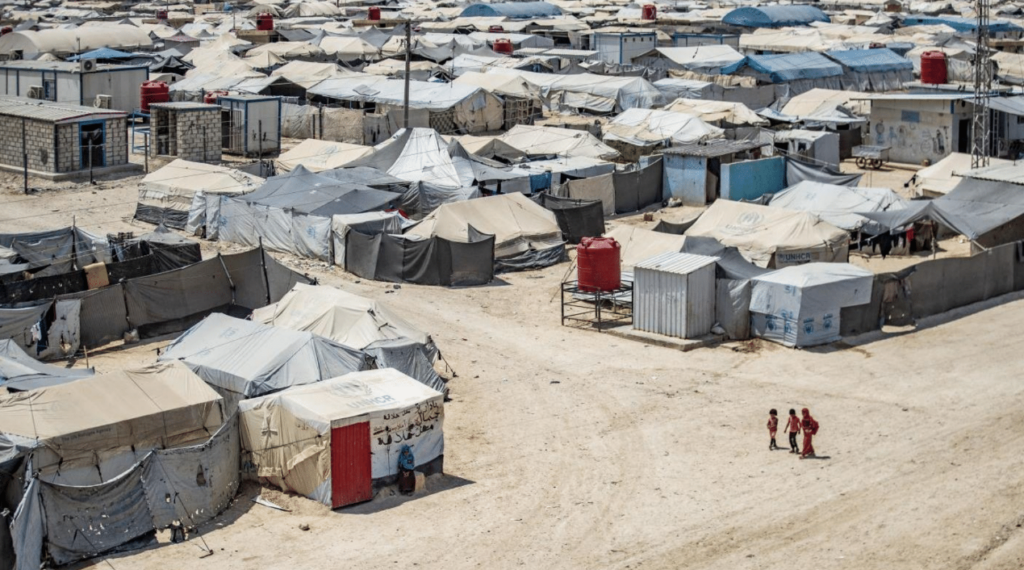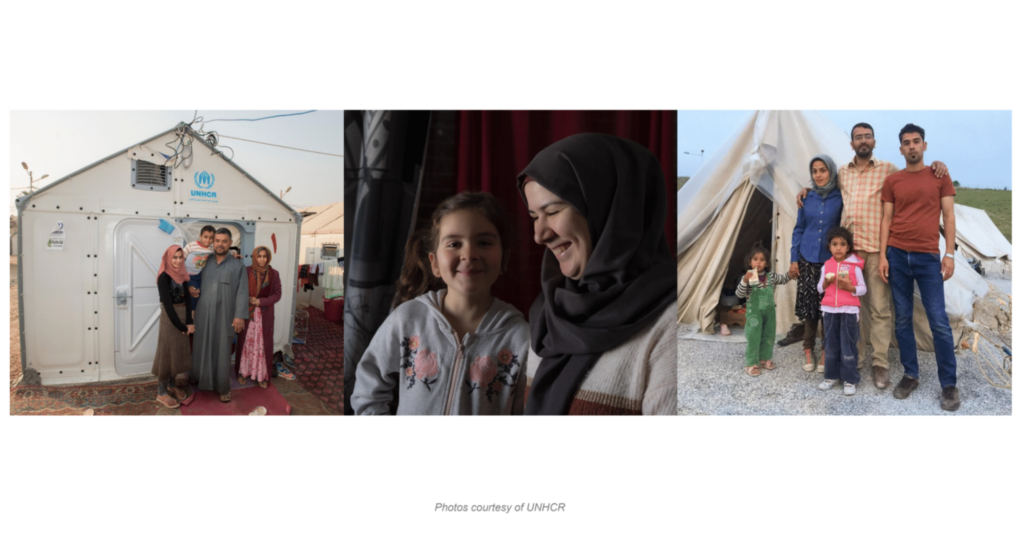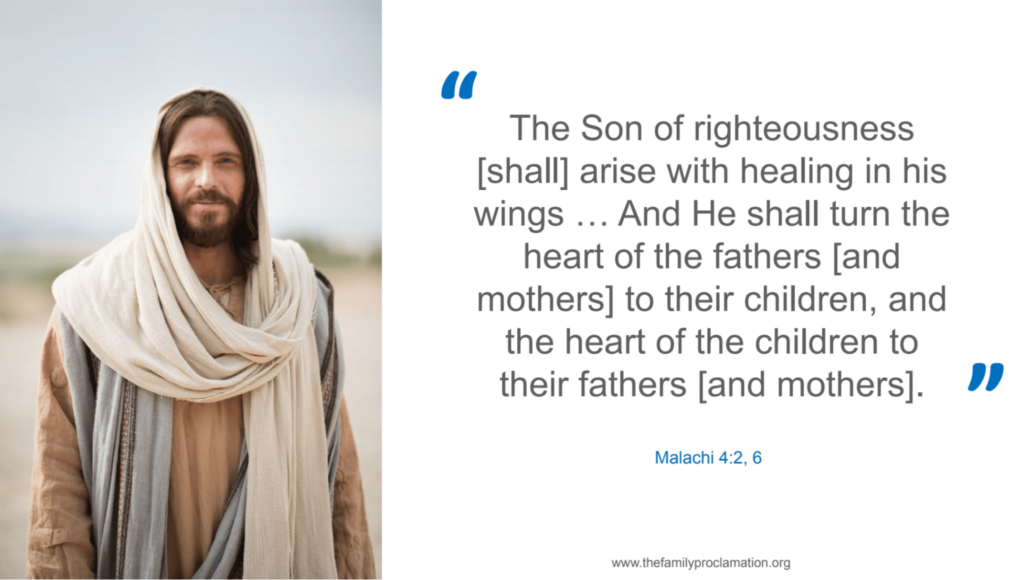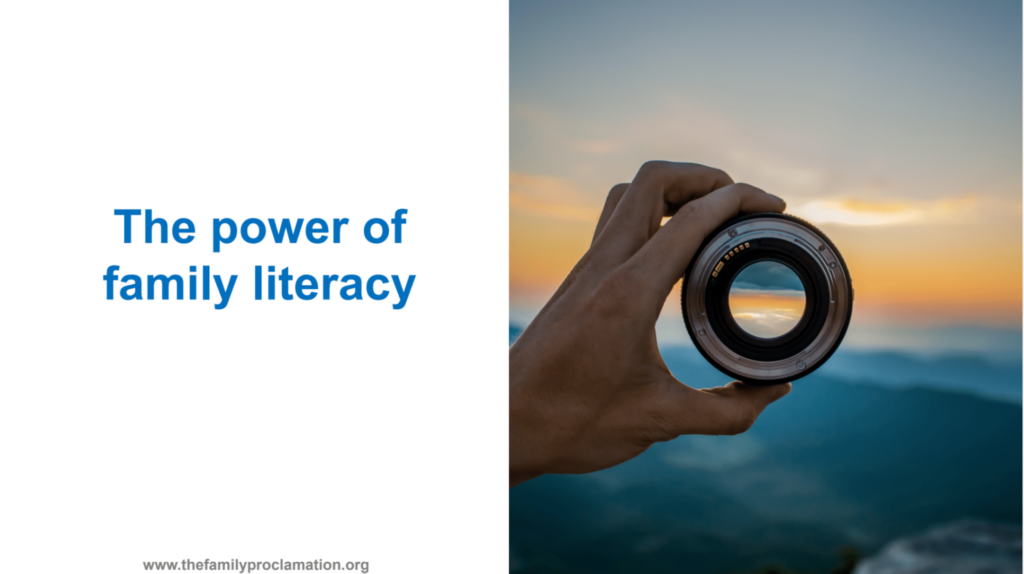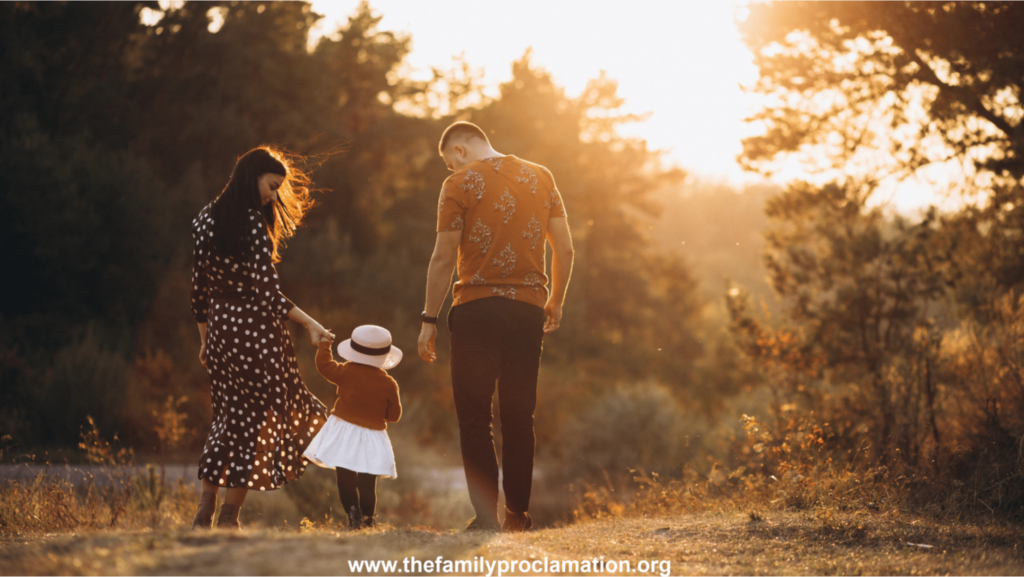Angela Fallentine emphasizes the critical importance of families in shaping resilient societies and addresses the global decline in “family literacy”—the understanding of the family’s essential role in society. Using personal reflections and global examples, she highlights how viewing social issues through a “family lens” can lead to stronger, healthier communities, and how thefamilyproclamation.org is aiding in this effort.
This talk was given at the 2022 FAIR Conference on August 5, 2022.
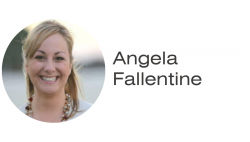
Angela Fallentine is a policy advisor at the United Nations and vice president of Skyline Research Institute who focuses on family policy, women, and peace, with expertise in strengthening families in humanitarian settings.
Transcript
Angela Fallentine
Introduction:
Alright, it’s great to be here today. First, I want to start off with an introduction. I grew up near Waterton National Park in Alberta and Glacier National Park in Montana. My happiest moments in those beautiful mountains were sitting by the lakes and the rivers with my family. But it wasn’t until I went to college in Idaho, near the Teton Mountains, that I learned to start fly fishing.
As a young adult, I grew to love fly fishing so much that I would nearly go every day in the summer. Early in the morning or after dinner time, I’d gather my hip waders, my rod, my hat, my tackle box, and head to the nearest river. I loved the smell of the mountain air, and I loved how cool and refreshing the water felt as I would wade in with my hip waders and have the water all around me, and then begin to cast.
Fly Fishing and Families
As a young adult, fly fishing was my time away from the world to recalibrate and connect with nature. I learned that nature is a great teacher.
Fly fishers will tell you that some of the best fishing in vast mountain waters can be found behind the boulders, where there are deep, calm pools of water. The water may rush around or over top of the boulders, but either way, the boulder protects fish from the current and provides a spot for them where the water is calm and deep. As a fly fisher, I found that, despite my standing in the middle of a river that was rushing all around me, if I focused on the calm, protected, deep pools of water behind the boulders, I would have the most success.
Now, in our contemporary moment, each of us finds ourselves standing in the middle of a rushing river of social change. This fast-moving river is cold, full of debris, and raging all around us, and there is no indication that it will stop. Like you, I have often wondered what can be done. How can I protect my family? How can I protect children, youth, and young adults from being swept away by this current?
Those of us who are professionally involved in family research and family policy are deeply concerned about the trends we are seeing with children and families around the world. We often ask one another, where can we be the most effective in our work? What can we do to help stem the tide?
I just want to take a little diversion from my prepared remarks to share something that I just scribbled out just a few hours beforehand that sets the tone, I think, for the rest of my message.
President Hinckley and the Family Proclamation
I want you to picture yourself back on September 23rd, 1995, in the Salt Lake Tabernacle. The room is filled with people—women and some Church leaders—waiting to hear a prophet of God, President Gordon B. Hinckley, getting ready to give some of the most important remarks, I think, that he had ever given.
Our beloved Prophet, President Hinckley, gave an address which has become, what I believe, a hinge point in the history of The Church of Jesus Christ of Latter-day Saints. It was a preamble to The Family: A Proclamation to the World titled Stand Strong Against The Wiles of The World.
In that, President Hinckley said,
There has never been a time in history when we have been confronted with more challenging problems. I need not remind you that the world we are in is a world of turmoil, of shifting values. Shrill voices call out for one thing or another in betrayal of time-tested standards and behavior. The moral moorings of our society have been badly shaken.”
Hope and Optimism
That was nearly 30 years ago. Where are our moral footings today? Now, despite that, we also know that President Hinckley is a prophet and was a prophet of hope and optimism. And so, despite his comments on the footings of the world and despite this being nearly 30 years ago, my answer today is one of hope and optimism, one that reflects the hope and optimism of a prophet of God that was my prophet in my youth and young adult years.
I will say that with this hope and optimism on the family, that I believe that between now and when Jesus Christ comes again, our greatest work will be done in the calm, protected pools of water behind those boulders, even when the river rages all around us.
Using A Family Lens
Now, let me explain how our team at thefamilyproclamation.org are working to do this through a new framework for teaching and communicating about the important roles that marriage and children and families play in society.
But first, I want to give you a background of the heart of the problem.
We know that the family is the most powerful influence on individuals and society. This is why there is such an urgent need for understanding the ways in which family and family influences are interwoven into every part of our social, cultural, spiritual, and political fabric of society.
However, despite these truths, our team, along with many family researchers, have observed that a family lens or a family perspective is not always used by local community or global organizations across areas of education, journalism, entertainment, public policy, law, humanitarian action, and economic and government affairs.
Lack of Understanding
When it comes to addressing challenges, a holistic, full-family approach to issues is not always utilized or developed to its full potential. Instead, our culture tends to view people as individuals separate from their families and not part of a family. This means that not enough people view the world through a family lens, and they don’t always ask about how things affect families when discussing ideas, trying to solve problems, and especially in educating children, youth, and young adults. Why is this, and why does it matter?
Over the past several decades and the past few years in particular, we’ve all seen the very tangible consequences of this lack of understanding of the family’s role in society. More and more, the world is neglecting a family-oriented lens in public life. In other words, there is a growing lack of literacy about the family, what our team at thefamilyproclamation.org has termed and reframed as family literacy.
Family Literacy
Now, whether we realize this or not, this lack of family literacy affects all of our lives in very real ways. But perhaps the most compelling consequence is that the role of the family becomes devalued in public life. When there is a lack of literacy about the family’s indispensable role in creating and maintaining strong, stable societies, the result is that marriage and family become devalued.
This, in turn, creates a devaluation of the family’s unique role in nurturing, protecting, and valuing children, and the brunt of this burden is being borne by those who are the least able to bear it: children.
Now, we’ve all seen this play out in significant ways on the global stage over the years, but we’ve also seen it play out closer to home, with our friends, our families, communities, and churches where the influence of entertainment, academia, and social media are obscuring the critically important roles that healthy marriages and families play in public life.
Family in Public Life
Recognizing this pressing need, our team at thefamilyproclamation.org have created the footings for a new program called Family in Public Life, along with an expanded understanding of family literacy. Our goal is to improve public understanding about why families, especially strong families, are so critical to the well-being of individuals and society. We believe that improving public understanding of families, or, in other words family literacy, will help provide clarity, consistency, and effectiveness when communicating or teaching about the important roles that family and family influences play in society.
Fundamental Principles
Our family literacy framework has several dimensions, but there are some fundamental principles that animate our mission and inform all aspects of our work. Family is a powerful force in the human experience. From the beginning of history to our contemporary moment, families continue to inspire the full range of human identity, whether engaging in dysfunction or disarray, or in profound acts of selflessness, courage, and compassion. Families influence individuals and society in powerful ways.
In spite of this reality and for many reasons, not enough people in our world understand the depth and breadth of this power, particularly in the secular arenas of our lives. This lack of understanding about families and their power has many consequences, and the ones that we are most concerned with are the social consequences. Partial or superficial understandings about the importance of families too often fuel misunderstanding, contention, and confusion. This also hinders creativity, imagination, and cooperation in local, national, and global contexts.
And so we believe that advancing a deeper understanding of families, what we call family literacy, provides tools to alleviate the negative consequences of family illiteracy and enhance families’ ability to generate powerful solutions and strength.
Expanding the Definition of Family Literacy
Although the term “family literacy” has been traditionally used when talking about education within the family and in the communities with the support of communities about reading and writing, our new framework expands the definition of family literacy to include education about the family.
This use of family literacy in this way has strong intuitive appeal. Literacy is widely used across many different fields, including media, cultural, health, religious, financial, computer, and digital literacy. So, with the goal of reaching a more global and interfaith audience, our team has created a new and expanded definition of family literacy as follows:
Family literacy is the ability to discern and analyze the important connections between the family and the world around us. In short, it is the ability to view the world through a family lens.
Specifically, having family literacy means that one will have the ability and skills needed to have first, a basic understanding about why the family is a fundamental unit of society that should be strengthened, and two, the ability to see all of the important ways that family and family influences are part of the world around us. Central to this definition is that family influences are interwoven into every part of the human experience.”
This new understanding of family literacy, we believe, helps us to know how to discern and articulate information related to the family. It also provides a new way to think about and then apply understanding and knowledge about the role of the family in the world. And I want to add that the potential for educators here is remarkable and significant because family literacy can be measured and quantified.
Thefamilyproclamation.org
Thefamilyproclamation.org is a tool that’s been designed specifically to improve family literacy. It’s been designed with you in mind. Here, each line of the Family Proclamation has been annotated and backed up by hundreds of ancient and modern scriptures, scholarship, and stories of people who live the principles of the proclamation.
Our website uses the 3S approach because scriptures reach and teach our spirits, scholarship ignites our intellect, and stories reach and teach our hearts. We’ve found that you need to combine all three of these elements together to improve family literacy. The entire purpose of this site is to provide you with the tools needed to increase family literacy and to support you in the good work that you’re doing in your family, in your church, community, and profession, whatever that may be.
Here are a few examples of what thefamilyproclamation.org is doing to help improve literacy on the Family:
We have podcasts. Fascinating podcasts. If you haven’t seen these podcasts or are familiar with them, you will be amazed at the wildly talented group of people that we have putting them on, the interviewers, and then the subjects that are for our day; they’re remarkable.
We also have a lot of unique videos that we have commissioned.
5 Pillars of Family Literacy
In this framework that we have, we have decided to put together five core principles or pillars of this framework that flow from an understanding about the central role that the family plays in society.
Principle 1: Embedded Family Influences
First, family influences are embedded in all dimensions of our culture and world. Family and family influences are interwoven into all dimensions of the human experience as opposed to the assumption that the family functions in isolated or private contexts. These influences can almost always be found when one asks the family question of any given social or historical experience.
Principle 2: Essential Role of Strong Families
Second, strong families and stable family life are essential to individual and social well-being. In short, sustainable flourishing societies depend upon strong, stable families. Across the globe, children are most likely to thrive socially, economically, emotionally, and educationally when they enjoy the shelter and stability of an intact family with a married mother and father. This formula provides a protective shield around children, buffering them from a host of negative outcomes.
Key to this principle of family literacy is understanding that as imperfect as they may be, strong, stable marriages and families play a vital role in determining the health and welfare of children and in providing tremendous potential for happiness, meaning, belonging, and even shaping the political, economic, and social destinies of nations.
Principle 3: Significance of Family Relationships
Third, everyone is shaped by and inextricably linked to their family. Among all of the many relationships that we have in the human experience, the most important and significant are our family relationships. It is within the family that individual identity emerges and develops, and where intergenerational, spiritual, cultural, and social bonds are created and shared.
This becomes more evident when married couples become parents because this essentially forms a linear bridge between family generations. In this sense, each family creates its own community with its own unique set of personalities, values, practices, stories, and family identity, which in turn influence individual identity.
Principle 4: Strength and Resilience of Families
Fourth, families are a force multiplier with unique sources of strength, resources, and resilience. Remarkable strength and fortitude can be found within a family despite the world’s many differing cultures. Families bear striking similarities in the ways that they turn to one another for strength.
Many studies have actually found that despite enduring adversity, hardship, and even trauma, families have the ability to rally together and draw upon each other for strength, and they often emerge with increased love, purpose, and resilience needed to face the future.
Principle 5: Family Connections Across Generations
And fifth, family relationships connect and bind generations together and provide meaning and belonging in life. Families are the primary relationships and first bonds that form powerful connections between generations through the combined lineage of a father and a mother.
Understanding one’s family heritage gives meaning, shapes identity, and connects individuals between generations. Research shows that when people anchor themselves in family history, stories, traditions, and experiences, they develop a sense of belonging which not only centers them but provides them with understanding and the potential to meet life’s challenges with resilience throughout their entire life.
I will say that this is actually particularly significant for children and youth because knowing about and keeping alive the stories of their family’s past actually help them to better understand themselves and it strengthens their emotional well-being.
Exploring Family Literacy in Action
I’ve just shared with you the five pillars of our new family literacy framework. But what does family literacy look like in action? What does it look like when people begin to see the world and its problems through a family lens? What happens when people truly understand the important roles that mothers and fathers play in creating healthy families with strong and resilient children? How does this make the world a better place?
My policy research focuses on strengthening families in humanitarian and conflict-affected settings in the Middle East. It is estimated that there are approximately a total of 235 million people currently living in humanitarian settings worldwide and this includes refugees and internally displaced people. Internally displaced people are those who are forcibly removed from their homes in their own countries, but are forced to reside outside of those areas in the boundaries.
Effects of War and Trauma
Most of these people have witnessed war, armed conflict, death, and trauma, and many of them will develop at least one mental health problem. But the influence of trauma exposure is especially difficult for refugee and displaced children because they are at a high risk for developing long-term psychiatric disorders. These traumatic events occur during their most important developmental years, and they are unable to address their new mental, emotional, and physical problems without the care, support, and encouragement of a strong family.
There are so many unspoken effects that war and trauma have on children and their families. They lose loved ones in really horrifying ways and often witness the unimaginable. We’ve all seen these scenes on television: bombs destroying buildings, chaos, destruction, and people running and screaming. It is always the people running and screaming that affects me the most, especially those terrified-looking children.
What would it be like for you to parent your children in a war zone or refugee camp? Would your children change? Would their normally happy, relaxed, carefree natures become fearful or withdrawn? How would you cope? Would you change?
Equipping Parents
My humanitarian psychologists and refugee researchers who view these problems through a family lens know that strengthening families by arming parents with skills and caring for their children can have a huge effect on their well-being and mental health. They also know that if left unaddressed, poor family functioning and mental health can become protracted, sometimes with intergenerational consequences for children.
Findings in refugee research have found that the quality of care that children receive in their families can have a more powerful effect on their well-being than the actual experience of the war that they had been exposed to. Children can be protected by warm, secure parenting during and after conflict. Research consistently shows that strong families are the best predictors of resilience for children and youth who have been exposed to war, trauma, and other serious adversities. In short, strong families provide a protective shield around children, buffering them against negative outcomes and the effects of psychological trauma.
My Research
My policy research focuses on the pioneering efforts of some intrepid humanitarian psychologists and refugee researchers who view these problems through a family lens. They truly have a strong sense of family literacy. They were seeing these families suffer in camps and conflict zones and they began to ask: how can we strengthen families in humanitarian settings? Could families be reached through training that would help them through these unimaginable struggles?
And so they went to work. They decided to find a way to provide parent and family skills programs in these contexts. They wanted to support families as families and not just as individuals, which is very common in the humanitarian world – treating people as individuals and treating just the children apart from their families.
Now in some initial research done in refugee camps in Syria and Turkey, parents reported that they watch their children withdraw, have bouts of sadness, depression, anger, reverting to bedwetting, thumb sucking, having fear of loud noises, fear of returning nightmares, terrifying nightmares. Mothers and fathers described how they themselves were coping so badly; they watched their children change and they had no idea how to help them.
But these families were always so motivated and so desperate to help their children despite all of the problems that they themselves faced. One researcher said,
Every single parent I met was struggling with emotional or behavioral changes in their children. Many go desperately looking for advice, asking camp doctors, teachers, or aid workers, but these people were too overwhelmed with their own roles or didn’t have the knowledge to help.”
The Need for Full Family Support
And so these humanitarian psychologists saw an urgent need for full family support, but they found there weren’t any programs to help families in these unique situations because in part, these problems and potential solutions weren’t being viewed through a family lens.
These families were struggling with things much bigger than they could cope with, but because of the magnitude of the problem, it’s impossible to reach families on an individual level.
The Efforts
So they first decided to put family and parenting advice in leaflets in bread wrappers being delivered by humanitarian workers in a Syrian conflict zone. They wanted to give them some basic tools to help children and parents better cope with what they were experiencing.
These leaflets explain to parents that bedwetting, nightmares, withdrawal, and even aggression were normal responses to childhood trauma, and they offered basic reminders and suggestions for looking after themselves and their children.
These efforts found a way to deliver initial psychological first-aid, with 3,000 families reached within just one week. Hundreds of families sent notes of gratitude for the leaflets, with some saying, “Thank you for not forgetting about us and our children.”
Real Experience
One humanitarian psychologist and refugee researcher shared that she was once sitting on a cement floor in a remote camp in Syria, meeting with mothers and their children, and helping them with parenting skills. She said that there was what seemed to be a 13-year-old girl lying on the ground, curled up in a corner with her head laying on the lap of an elderly woman, perhaps her grandmother.
As this researcher was getting ready to leave, the elderly lady looked at her and said, “Can you help us with…?” She smiled and approached the young girl and asked her what her name was in Arabic. The girl stared blankly at her for quite some time and finally said, “Haloon.” Now, “Haloon” in Arabic is a form of the name Hala, which is a nickname usually reserved for really little girls. But at that moment, this researcher realized that the girl was probably much older than 13.
It turns out that Hala was a 25-year-old married mother of three little children. Hala had been a confident, bright, bubbly, loving, caring mother, but war and exposure to death had changed all of that for her. She had lived through bombs being dropped in her town. When fighter jets were flying around their building and dropping bombs, her children would be screaming, terrified from the noise.
Hala would frantically grab pillows and cover her children’s ears to block out the noise, all the while screaming herself.
When they reached the refugee camp and she knew that they were finally in some kind of safety, she completely withdrew to acting like her old childhood self. She completely rejected her family, her little children, and her husband. Hala simply could no longer cope.
This is a very sad story, but unfortunately, it is not uncommon. Parents and children who experience armed conflict and displacement will face serious emotional struggles without timely resources to help strengthen their family and mental health.
Full-family Skills Program
After seeing so many of these situations, these intrepid, innovative humanitarian psychologists and refugee researchers decided to create a brand new evidence-based, full-family skills program designed specifically for use in conflict-affected areas, and it is working.
Mothers who said that they had forgotten how to mother began to nurture their children again and remember the importance of hugs, loving words, and affection, something they had forgotten to give their children in the chaos of war. Fathers reported feeling less helpless and depressed and stopped using harsh parenting practices when their children acted out. And both mothers and fathers became more compassionate with one another.
One young mother, after attending the program with her family, later told researchers that she had gone back to her tent and read her children a bedtime story for the very first time since arriving in camp. These refugees started to turn their hearts towards their families again and looked to one another for sources of strength, and grow in their capacity to endure hardship with stronger resilience to face the future.
Testimony
I have come to know for myself that even the most vulnerable of our Heavenly Father’s children are not forgotten, and the promise for families found in the book of Malachi is real and true in the most literal sense.
And the Son of righteousness [shall] arise with healing in his wings… and He shall turn the hearts of the fathers [and the mothers] to their children, and the hearts of the children to their fathers [and their mothers].”
This is the power of family literacy in action, viewing problems and solutions through a family lens.
Conclusion
What I’ve shared with you today is an example involving only one field of work, but what would improved family literacy look like in every sector, in every city, in every country? What would it look like in your field of work?
The challenges families are facing here in the 21st century are immense and require fresh thinking and creative collaboration across all sectors of society. Deeper understanding about the power of families is an untapped resource with remarkable regenerative power. So, improving public understanding about the value of families in our world will require the collective wisdom, collaboration, and resources of engaged and responsive people who are passionate about fortifying families.
I am hopeful and optimistic about the future and believe that there is so much good work to be done.
I believe that we will do this because those who are concerned about families believe that we all have the obligation to propose, along with the Apostle Paul, the more excellent way. We will face this challenge everywhere we go. When faced with ideologies that obscure the critical role that healthy marriages and families play in society, we must be prepared to declare truth as never before, and we must be prepared to do it in a way that reaches hearts and minds like never before. And this need only intensifies in a world that is simultaneously hungry for and resistant to our message.
I hope this new framework on family literacy and family and public life will help encourage a renaissance of successful and happy marriages and families. And so I invite you to join us as we seek to advance public understanding about families in service of a world where no one is left behind and where families flourish. Thank you.
Scott Gordon:
Well, that was quite interesting. I have to confess something. So back when the Family Proclamation came out, yes, I was alive then. I know dinosaurs roamed the Earth at the time, but I was alive then. I remember they asked us to put that up everywhere in our homes and in the Church buildings. But about the same time, another proclamation came out, which was The Living Christ. And I thought, “you know, the Church usually gets things right, but this time, I don’t know, because we want the living Christ to be promoted, and the Family Proclamation, that’s kind of old news. Everybody knows that.” And yet today, as you said, everybody doesn’t know that. I was touched by your stories of the people in refugee camps, and how they’d forgotten to be mothers and fathers.
So the question is, I’m sure everyone says “how can we help the refugees?” But with our changing family dynamics here in the United States and other developed countries around the world, do you believe the family really is disintegrating, and those skills need to be retaught to our youth?
Angela Fallentine:
Yes, I think that they do need to be retaught. We learned that in the Book of Mormon, where there is a generation, where the entire generation did not know the doctrine of their parents, and they had to be retaught. And I think that we’re at that hinge point right now where we’re starting to see, if I may say, a type of doctrinal illiteracy on the family and an illiteracy on the Family Proclamation and the theology of the family, which is really central to the Plan of Salvation — which is the Creation, the Fall, and the Atonement of Jesus Christ. And so if we lose those fundamental pillars of the theology of the family as connected to and taught in the Family Proclamation, we will have a devaluation of the family not only within society but even within our own Church if we’re not careful to watch and make a course correction.
Scott Gordon:
So if we decide that okay, this needs to be taught, this is something we need to actually not just have people observe growing up naturally as they have in the past, but we actually have to educate our children in families, where do we do that, what’s the best way?
Angela Fallentine:
Well, we created thefamilyproclamation.org specifically to help busy parents. Because over the past decade, so many of us who are part of this team and who have collaborated on this, whether they’re academics or people in public policy, law, or a million different areas, we were always asked, “Where’s the data on that?” or “Where’s a story that I could teach my kid about this?” or “I am having a really hard time with my young adult seminary class or my institute class in teaching the theology of the family, where do I go?”
So what we ended up doing is, Nathan Richardson back in 1996, annotated the Proclamation. He may have been one of the first, I don’t know, but he annotated it, every line, to back it up. And so what we did is we built upon his work and we decided to annotate it so that parents could use that as a one-stop shop essentially to start.
And what’s really cool is that it’s for every age. Mission presidents can use it, Bishops can use it, Stake Presidents, we have seminary and institute people using it, there are so many resources. And so we have even videos and curriculum for even the littlest of disciples to the oldest of disciples.
And I think that there’s so many things that seem to be lost in the depths of lds.org and there’s so many good resources there. And I just want to say that the answers to every single social question, even the most thorny answers, are found in the family proclamation and on our website because we’ve done that work for you.
And it’s been peer-reviewed, the social science is quality social science that can back up the words of ancient and modern apostles. So it’s comprehensive, we hope.
Scott Gordon:
So this isn’t just a group of people who just wrote their opinions and put them out there because this is the way you thought things should be, right? This is actually… it’s actually backed up by peer review and such.
Angela Fallentine:
So yeah, and one of the things about our research, we have a research page on there explaining research, is that quality research will never contradict the doctrine of the Church. If you really look at those things, it will actually complement the doctrine and restored gospel of Jesus Christ. So if you find research that is opposite of what our prophets and apostles are teaching, that would give you pause, I think.
Scott Gordon:
So, I’m thinking here, gosh, we can do this in our home. We can teach our kids and during Come Follow Me time, that kind of thing. Has there been any outreach to schools or community colleges or anything like that as far as this goes?
Angela Fallentine:
I’d say watch the space. Okay, let’s wait and see
Scott Gordon:
Well, I mean, I teach at a community college. I also teach at a university part-time. I teach at a community college, and the students, of course, all love the human sexuality class. They all have to take that one. But it’s interesting, I don’t think there is, well perhaps there is one family class, but if I remember right, it had very low enrollment. So, how do we get the interest up both in our political leaders and in our students and in our children to really think this is an important topic? Because families, let’s face it, families are just around us. So things that we’re familiar with, sometimes we think are boring, you know? It’s like, it’s family, you know, Dad, whatever. So how can we get everybody involved in this?
Angela Fallentine:
Well, I think that’s why we’ve expanded the term “family literacy” because literacy is part of education. And so when we started putting our heads together to think, okay, what’s an intuitive way, what’s a quick way to say, “Ah, you’re not understanding the family and the importance of family and family influences in public life.” Well, ultimately that’s our goal, is to improve family literacy.
So when you use it in that sense, and we have the footings which I introduced on like kind of just the beginning stages of a family and public life program, which we hope to develop with the help of just talented individuals that work in education and that can get this to the masses and including interfaith. I mean, this is what the what I presented actually did not have anything specific to the Church of Jesus Christ of Latter-day Saints. It is for anyone. And I think that that’s a step and we’re working—we will be working on that.
Scott Gordon:
Well, I know most of my students I have in my classes, and again, I teach at a secular institution, but most of my students are single moms. And more power to them, they’re my heroes. But I think we need to do more teaching on how to keep families together and how to help dads stay in their lives, and things would be really helpful. So anything we can do in that area would be great.
Angela Fallentine:
That’s a good point, and we’re going to note it. We have people taking notes right now, so thank you.
Scott Gordon:
Okay, thank you so much for your thoughts on this. We really appreciate your time.
Angela Fallentine:
Thanks, Scott, appreciate it.
coming soon…
Why focus on families when society emphasizes individualism?
Angela highlights that families provide a foundation for identity, resilience, and societal health, emphasizing their indispensable role.
How can families be supported in humanitarian crises?
She provides examples of programs improving family dynamics and resilience even in conflict zones.
The Family Proclamation as a guiding document for understanding family roles.
Family literacy as a solution to societal challenges.
The universal and interfaith applications of family-centered frameworks.
Share this article




